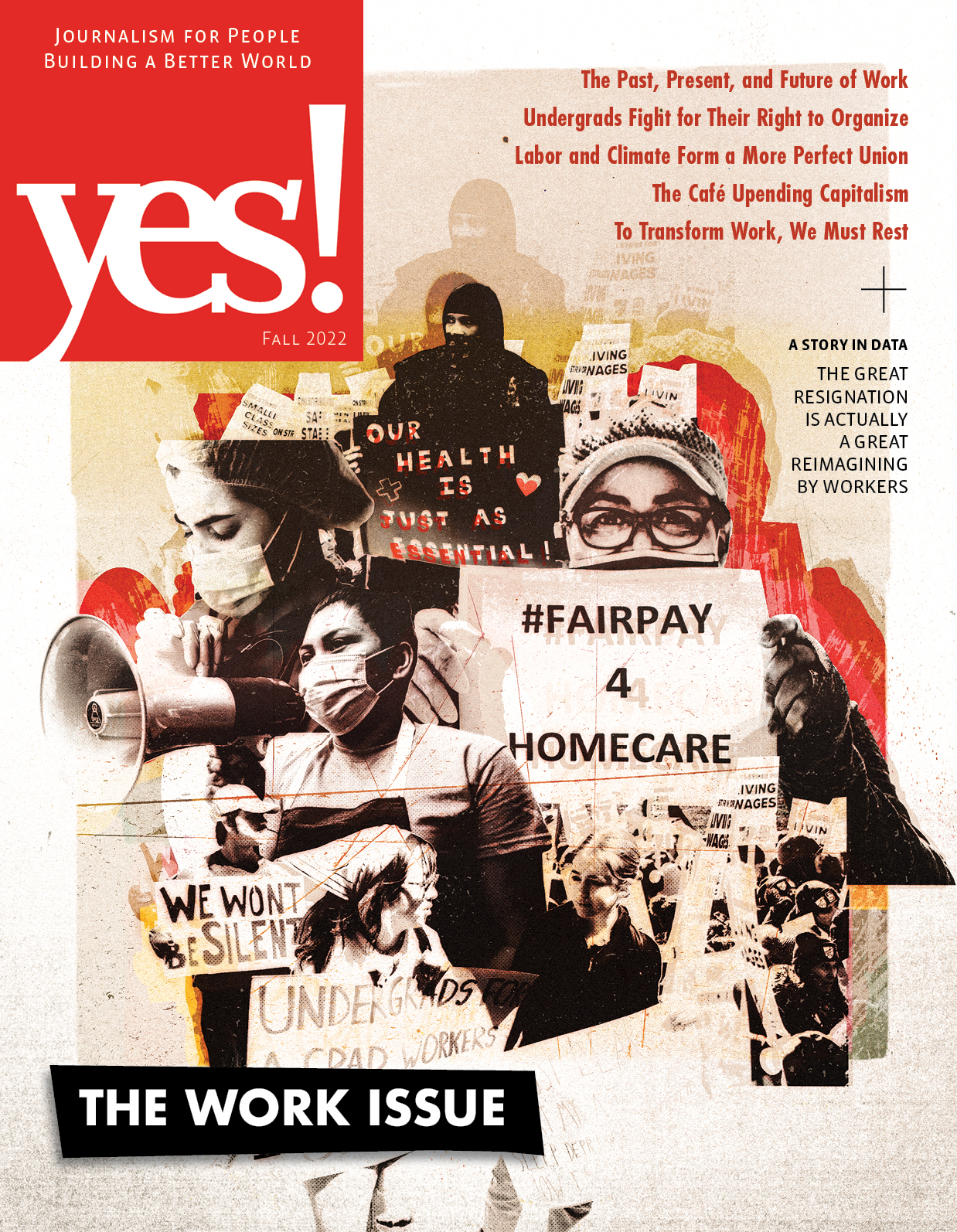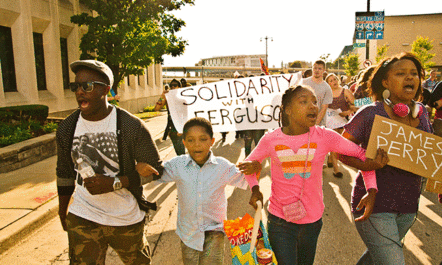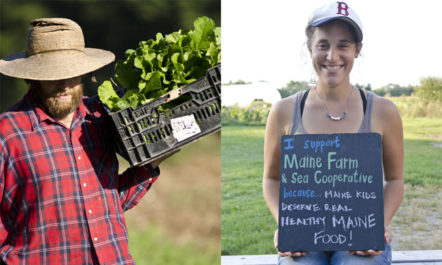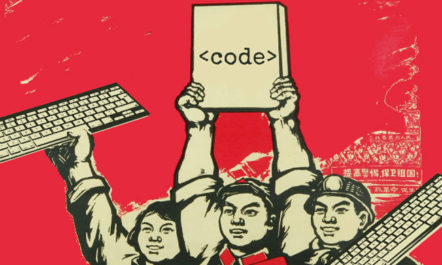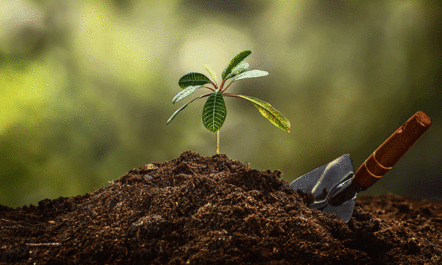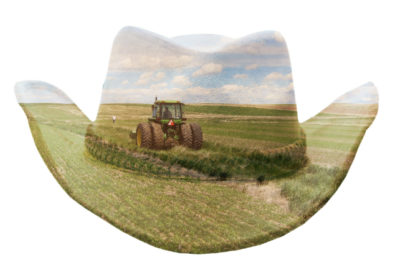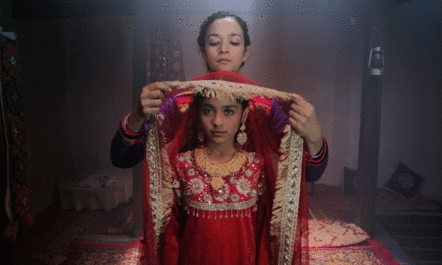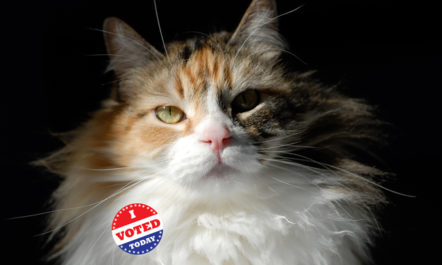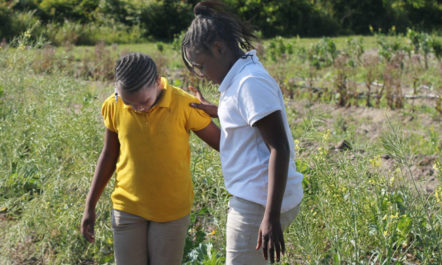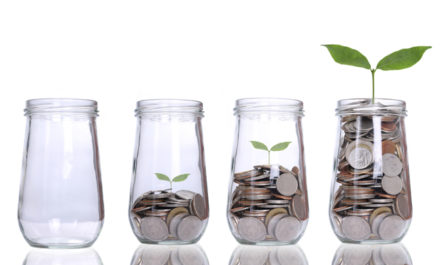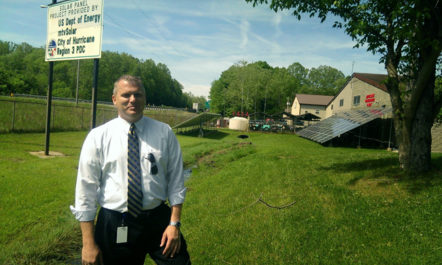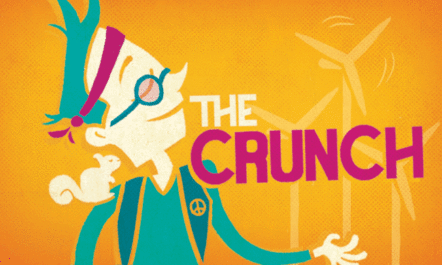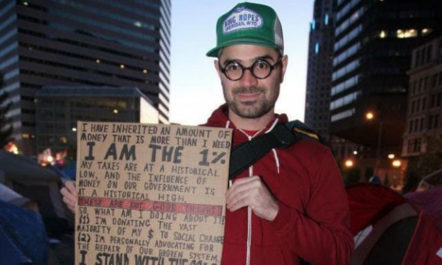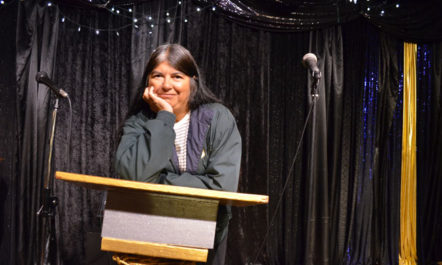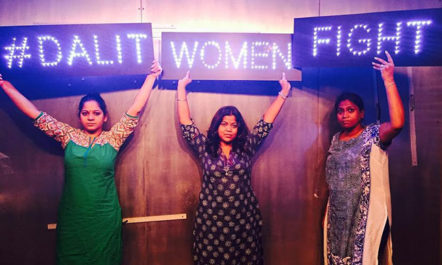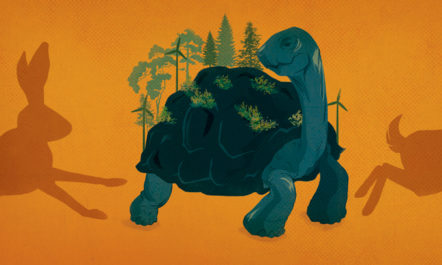Just a year and a half after the St. Louis area became internationally known for racism, the city is considering building a billion-dollar stadium. If justice was our priority, says organizer Julia Ho, those tax dollars would be spent very differently.
By centering on race, seeing community members as experts, and changing policies, we can build an economy that benefits everyone.
For the past 10 years, University of Maine students have been fed by a giant corporate food distributor. If Maine Farm & Sea Cooperative wins the next contract, they’ll send millions of dollars to local farmers and fishermen instead.
The flourishing of farmers markets and credit unions demonstrates a longing for business that serves the common good. Can it infiltrate the Amazon-dominated, Uberized Internet?
Katrina Spade, creator of the Urban Death Project, talks about human composting and why she's trying to make it legal in Washington state.
Capitalism vs. Climate: Naomi Klein’s New Film Takes Us From the Current Crisis to the World We Want
In "This Changes Everything," Naomi Klein lays out how industry interests are opposed to those of ordinary people—a point climate activists have had trouble communicating and been reluctant to fully embrace.
Renegade farmers in Montana break from a long history of Big Ag and harmful monocrops.
Here's what they gave us, from comics to collage.
In her directorial debut, Afia Nathaniel brings the reality of Pakistan's child bride crisis to American audiences.
From campaign finance reform to protecting small business, Tuesday's elections had a few big victories.
When we work together, share meals together, and laugh together, we’re repairing relationships with the soil as a community.
Reinvestment could also unite students organizing for other forms of divestment, like prison divestment and divestment in solidarity with Palestine.
So far, the state isn’t stepping up to build a solar-powered future. That leaves the bulk of the work to residents.
Early results show Seattle passing the Honest Elections ballot initiative. Voters will receive four $25 “democracy vouchers” every election year, which they can donate to the campaign of their choice.
To debate this crucial issue in the new economy, we’re co-hosting a panel on November 9 with experts in the field. Please RSVP and join us!
Half of small businesses don’t make it past the first five years, and owners lose everything trying to pay off the loans. The Working World lets co-ops stabilize before repayment even begins.
Man-made space trash is headed for Earth; there is science to back up why we love horror movies; and campfire stories are reimagined for the tech era.
A growing cadre of the owning class is crafting a healthier relationship to the other 99 percent: “It is not about individual therapy or even engaging in philanthropy or charity. It’s about collective action.”
The philosopher’s lessons include how to let go and find happiness—even after crippling debt and a heartbreaking divorce.
Why family debts shouldn’t be about money or expectations, but about love.
Next year, residents will vote on replacing the Affordable Care Act with ColoradoCare, a plan that works like a cooperative. In a purple state like this, it just might work.
Asha Kowtal and the Dalit Women's Self-Respect March traveled across Northern India to document the ongoing violence against women who were once branded as "untouchable." Now, they're raising new leaders, and finding allies in Black Lives Matter.
An exciting crop of organizations are financing businesses in a way that creates real wealth. Here are a few ways to scale them up so that they can truly challenge Wall Street.
Opening borders can have unexpected benefits; studies show alarming links between air pollution and dementia; and Native Americans talk about illegal immigration.
Who needs banks when you have communities? And organizations like Mission Asset Fund have even figured out how to use the system to raise credit scores.
Help Fund Powerful Stories to Light the Way Forward
Donate to YES! today.
